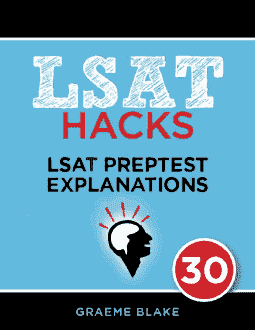QUESTION TEXT: Joseph's statement that “this alleged theorem simply…
QUESTION TYPE: Role in Argument
CONCLUSION: It is likely that Fermat was either lying or mistaken when he made his claim that he had a written proof for his theorem.
REASONING: No one has been able to prove the theorem so it probably never can be proved.
ANALYSIS: Joseph’s argument is not good (even without Laura’s info.) The fact that something has never happened does not prove that it never can happen.
The phrase in question is a premise that supports Joseph’s conclusion. It is also an intermediary conclusion, supported by the fact that no one has yet proven the theorem.
Incidentally, I believe Fermat’s theorem has been proven since this LSAT question was written.
___________
- There is support offered: no one has yet proven the theorem (as far as Joseph knows.)
- CORRECT. A subsidiary conclusion is something supported by other evidence. The subsidiary conclusion in turn supports a final conclusion (Fermat was lying or mistaken.)
- No. Joseph agrees with this statement. He does not object to it.
- Same as C. Joseph agrees that the theorem likely cannot be proven.
- The fact that the theorem cannot be proven directly supports Joseph’s conclusion.


Leave a Reply